


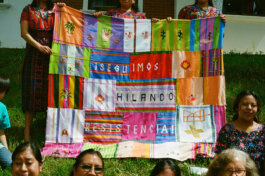
Welcome to the women's house of the AFEDES association (Association Femenina par el Desarrollo de Sacatepéquez), at the heart of the national weavers' movement.
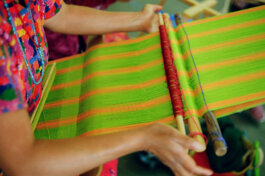
The week begins with a daily ritual: the invocation of the ancestors. In chorus, they gather around the fire and offer their thanks. On the ground, the glow of candles symbolise these elements through their colours, and bouquets of flowers are placed at each point of the compass.
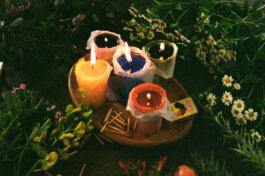
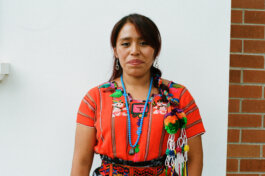
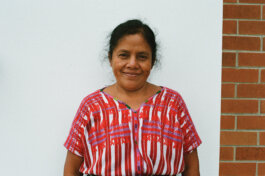
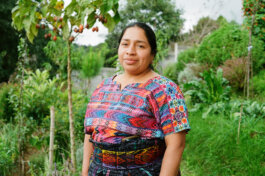
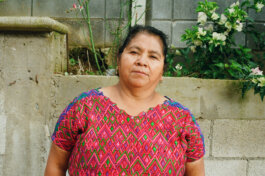
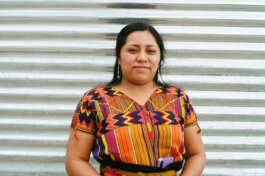
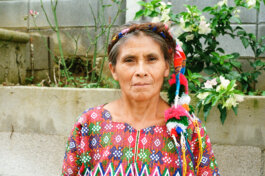
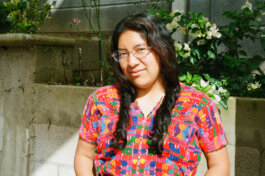
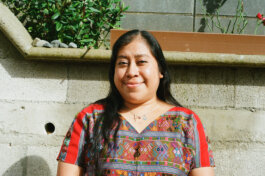
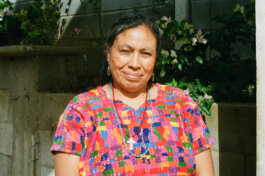
Here, weavers from several villages come together thanks to the association, which offers a space for meeting, reflection and action to recover their identity and history as Mayan women.
In the Mayan vision of the world, women are intimately linked to life, nature and the cosmos. Since time immemorial, and even more so today, women are strong together and proud of their identity and their Mayan heritage.
The association works for women's rights to end violence against women and the creation of a "new economy" by addressing the structural nature of inequalities linked to patriarchy, capitalism and colonialism.
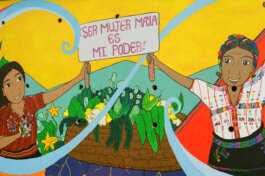
Ixchel, who is in charge of the AFEDES association, runs the workshop with us. She is the daughter of Marineta, one of the weavers with whom we were lucky enough to work on the project.
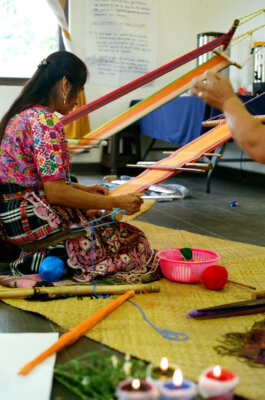
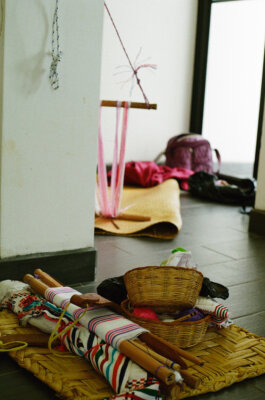
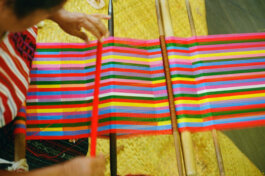
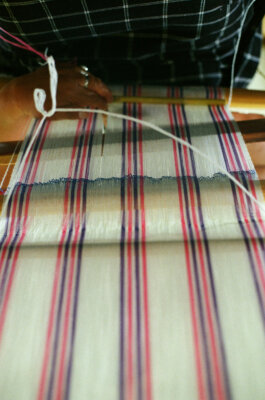
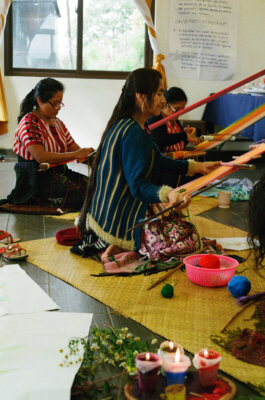
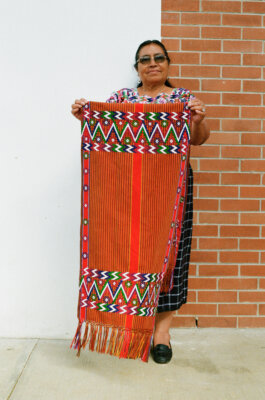
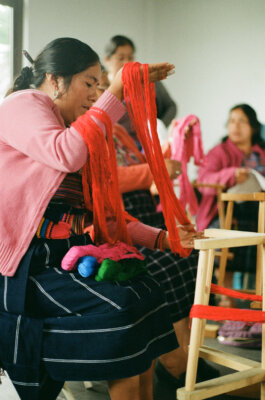
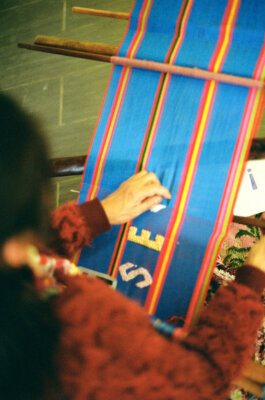
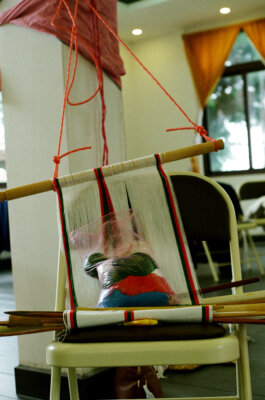
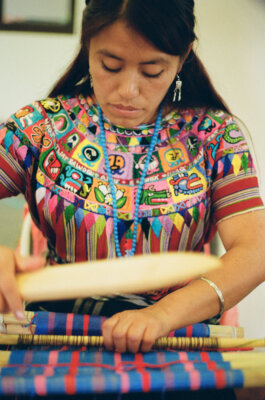
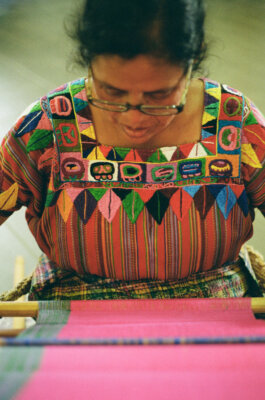
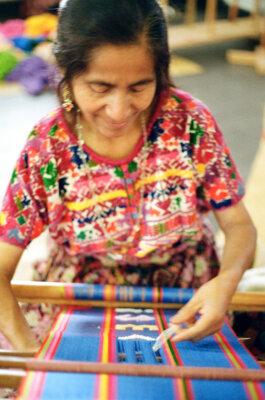
On the first day, we looked at the symbols of struggle, strong women and power, in relation to their Mayan culture.
For the dye, the artisans use the leaves of a traditional dye plant grown in the oasis of the arid regions of southern Morocco in micro-farms practicing agro-ecology.
In groups, the women draw these representations and begin to weave their own interpretations. This is an opportunity to create a new drawing and to link their cultural heritage to their time. For them, it's the first time they've woven anything other than the patterns handed down by their grandmothers.
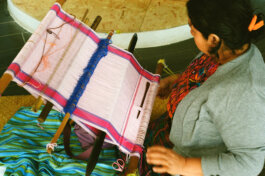
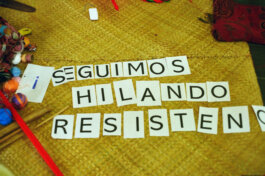
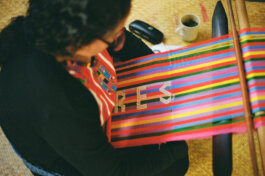
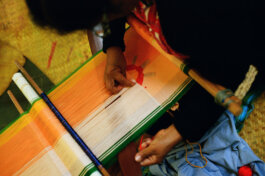
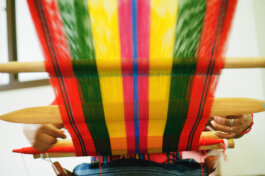
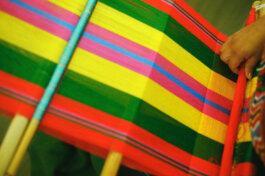
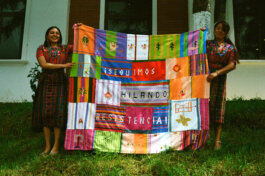
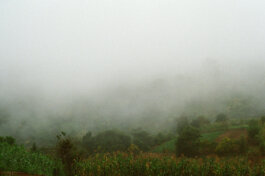

Welcome to the women's house of the AFEDES association (Association Femenina par el Desarrollo de Sacatepéquez), at the heart of the national weavers' movement.

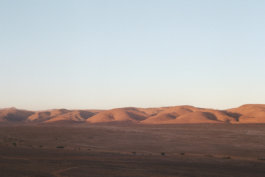











Ixchel, who is in charge of the AFEDES association, runs the workshop with us. She is the daughter of Marineta, one of the weavers with whom we were lucky enough to work on the project.














On the first day, we looked at the symbols of struggle, strong women and power, in relation to their Mayan culture.
For the dye, the artisans use the leaves of a traditional dye plant grown in the oasis of the arid regions of southern Morocco in micro-farms practicing agro-ecology.
In groups, the women draw these representations and begin to weave their own interpretations. This is an opportunity to create a new drawing and to link their cultural heritage to their time. For them, it's the first time they've woven anything other than the patterns handed down by their grandmothers.



